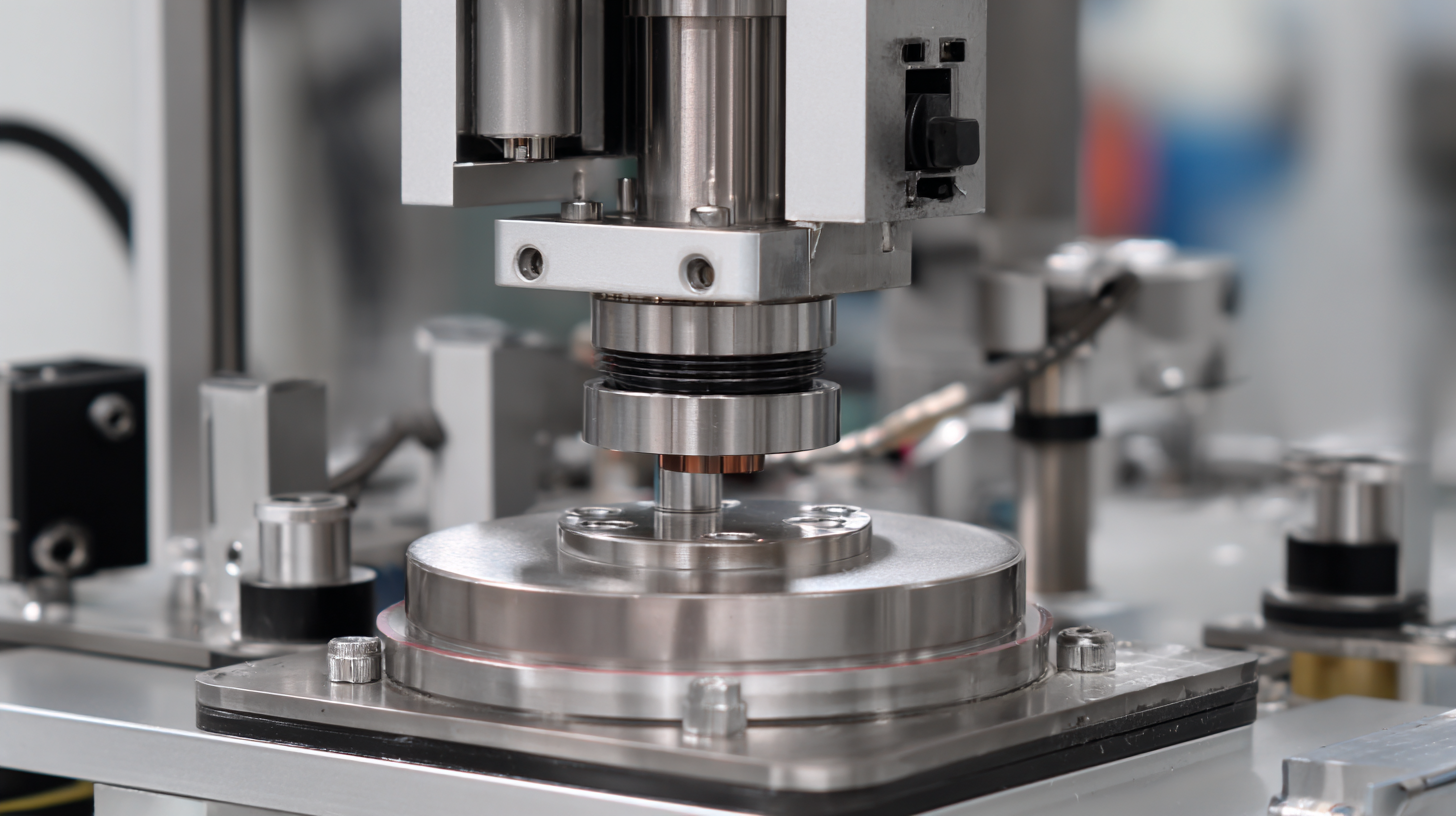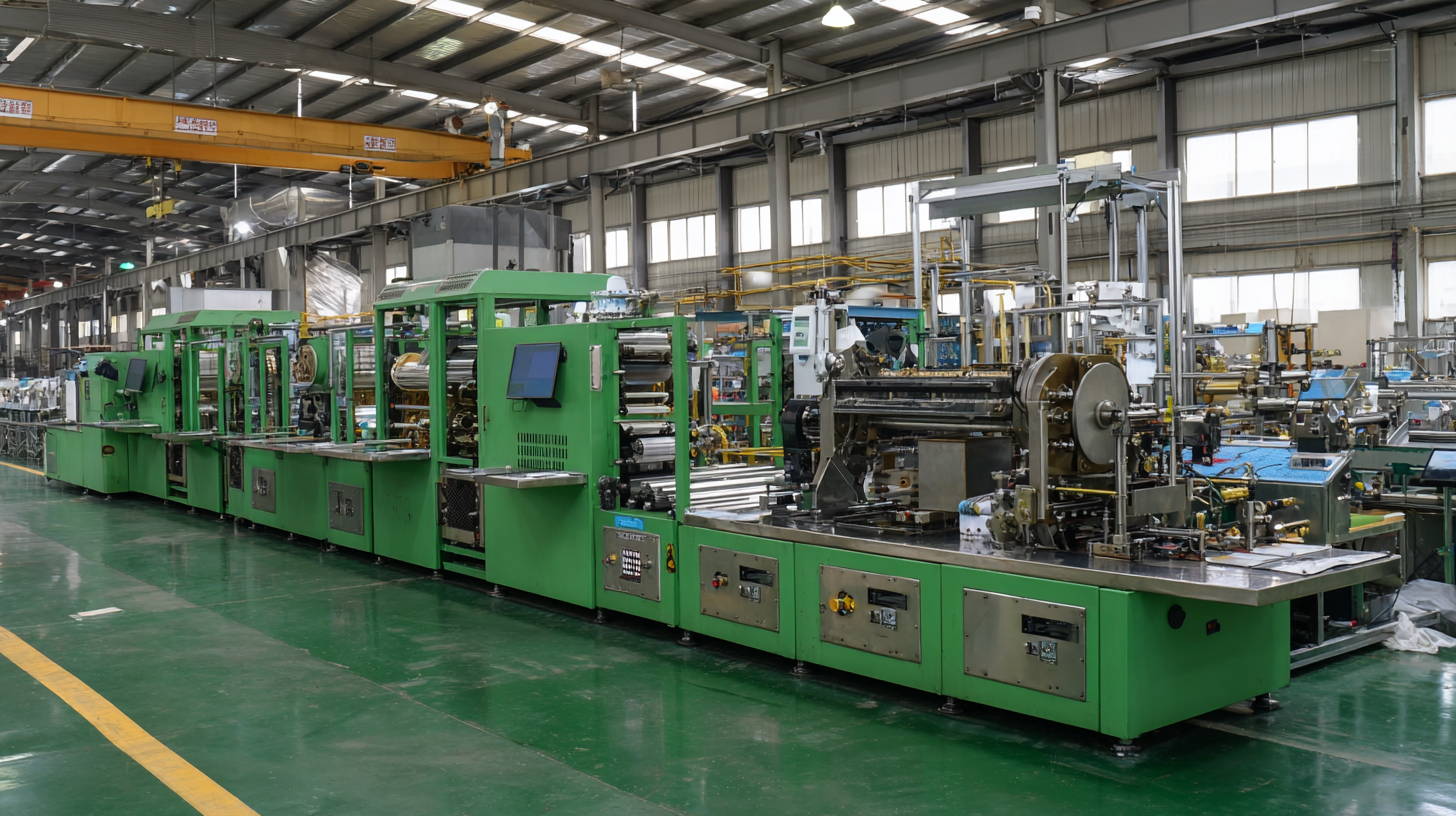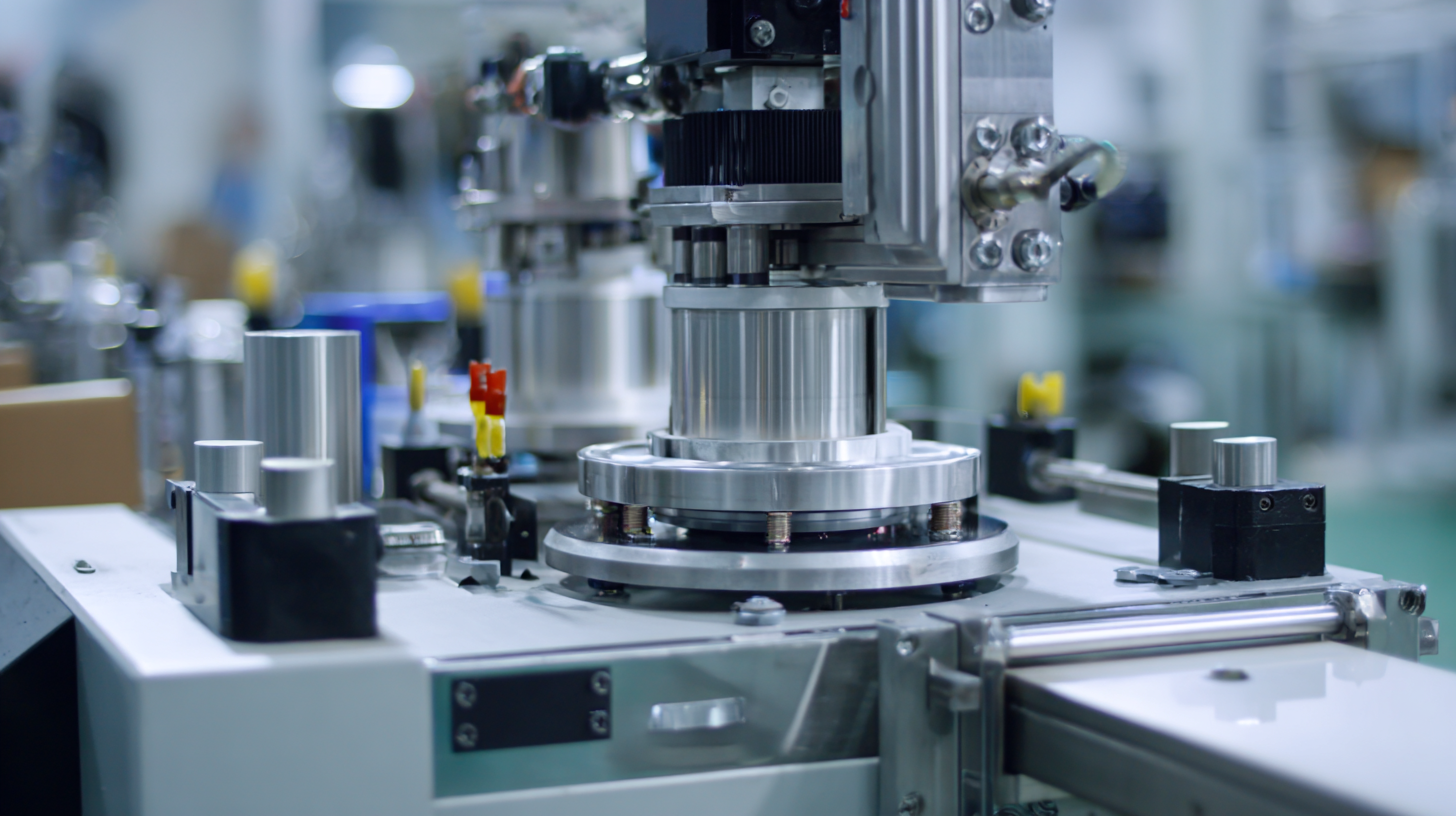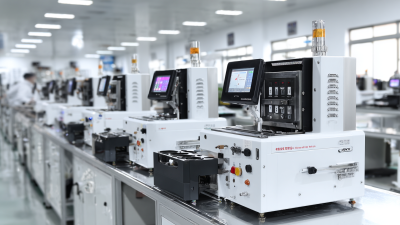Leave Your Message
Choosing the right Can Sealer Machine is crucial for businesses involved in food and beverage packaging, as improper sealing can lead to spoilage and waste, significantly impacting profits. According to a report by Grand View Research, the global can sealing machine market size is expected to reach USD 1.22 billion by 2025, reflecting an increasing demand for efficient packaging solutions. As industries strive to optimize their operations, selecting a suitable can sealer aligns with the growing emphasis on quality control and product safety.
 Moreover, with advancements in technology, modern can sealer machines come equipped with enhanced automation and precision, catering to a wide range of canning sizes and materials. Understanding the specific needs of your business—whether for craft beverages, canned foods, or specialty items—ensures that you invest in a can sealer that not only meets production requirements but also promotes sustainability and efficiency in your packaging processes.
Moreover, with advancements in technology, modern can sealer machines come equipped with enhanced automation and precision, catering to a wide range of canning sizes and materials. Understanding the specific needs of your business—whether for craft beverages, canned foods, or specialty items—ensures that you invest in a can sealer that not only meets production requirements but also promotes sustainability and efficiency in your packaging processes.
Choosing the right can sealer machine for your business starts with a thorough understanding of your specific requirements. The canning industry is expected to grow at a CAGR of 5.1% from 2022 to 2028, with increasing demand for ready-to-eat and packaged food items driving this trend (Research and Markets, 2022). Businesses must evaluate their production volume, types of materials, and product viscosity to select a machine that meets their operational needs efficiently. For example, high-volume producers may benefit from automatic can sealing machines, while smaller businesses might find semi-automatic options more cost-effective.
**Tips:** When assessing your needs, consider conducting a detailed analysis of your production workflow. This can help identify bottlenecks and establish the optimal sealing speed required to meet your demand. Additionally, factor in future growth; investing in a versatile machine can potentially save costs in the long run by accommodating shifts in production capacity.
Understanding the specifics of your canning process—such as the types of cans (e.g., aluminum or tin), sizes, and seal integrity required for your products—will significantly influence your choice. Industry studies indicate that incorrect sealing can lead to up to 20% product spoilage, emphasizing the importance of selecting a reliable machine that ensures proper can closure and prevents contamination (Food Processing Technology, 2023).
**Tips:** Make a checklist of the materials and types of products you plan to seal. Engaging with manufacturers and reviewing their technical specifications can provide valuable insights tailored to your unique needs.
| Business Type | Production Volume (cans per hour) | Can Size Compatibility | Price Range | Key Features |
|---|---|---|---|---|
| Small Scale Food Producer | 100-300 | 250ml - 500ml | $1,000 - $2,500 | Manual operation, Compact design |
| Medium Scale Beverage Manufacturer | 300-600 | 250ml - 1L | $2,500 - $5,000 | Semi-automatic, High-speed sealing |
| Large Scale Food Processing Plant | 600-1,200 | 500ml - 2L | $5,000 - $15,000 | Fully automatic, Advanced control system |
| Craft Beverage Company | 200-500 | 330ml - 750ml | $1,500 - $3,500 | Versatile, Customizable settings |
When evaluating different types of can sealer machines available on the market, it is essential to consider the specific needs of your business. Various models cater to different production scales, with manual, semi-automatic, and fully automatic options available. Manual can sealers are ideal for small operations or startups, offering affordability and ease of use. In contrast, semi-automatic machines are suited for moderate production, allowing for quicker sealing processes while still being cost-effective.
On the other hand, fully automatic can sealer machines are designed for high-volume operations, boasting advanced technology that increases efficiency and consistency. These machines often integrate seamlessly with existing production lines, minimizing labor costs and maximizing output.
When selecting a can sealer, it's also important to consider the type of cans you will be using. Ensure that the machine is compatible with the size and design of your containers to achieve optimal sealing performance. Additionally, reviewing the durability and maintenance requirements of different models can help you invest wisely in equipment that will serve your business well in the long term.
When choosing the right can sealer machine for your business, it's crucial to assess your production volume and operational efficiency needs. For instance, a manufacturer producing monoclonal antibodies may require a high-throughput solution to ensure quality and compliance, while a small-scale organic food producer might prioritize a machine that is adaptable and easy to use. According to a systematic review on manufacturing operations in SMEs, an optimized production process can substantially enhance operational efficiency, leading to better performance and reduced costs.
To ensure you make an informed decision, consider the following tips:

When selecting the right can sealer machine for your business, cost-effectiveness and maintenance considerations play crucial roles. According to a report by Grand View Research, the global can sealing equipment market is projected to reach USD 2.14 billion by 2025, emphasizing the growing importance of efficient sealing solutions across various industries. Businesses must evaluate the initial costs of can sealing machines against long-term operational savings. For example, a high-speed sealer may have a steeper upfront price but can significantly reduce labor costs and increase throughput, thereby enhancing overall profitability.
Maintenance is another critical aspect that cannot be overlooked. Research from Packaging Machinery Manufacturers Institute (PMMI) indicates that devices with lower maintenance requirements can save companies up to 20% in annual operating costs. Regular maintenance, along with ease of access to components, can extend the lifespan of the machine, ensuring that businesses avoid the costly downtime associated with equipment failure. When choosing a can sealer, it’s essential to investigate not only the cost of repairs but also the availability of spare parts and technician support to keep operations running smoothly.

When it comes to selecting the right can sealer machine for your business, brand reputation and customer support play crucial roles in ensuring a sound investment. According to a recent industry report by the Packaging Machinery Manufacturers Institute (PMMI), 70% of buyers prioritize an established brand reputation when purchasing sealing equipment. A trusted brand not only signifies quality but often comes with the assurance of reliability in production efficiency.
Tips: Always research customer feedback and engage with other businesses in your sector to gather insights about their experiences with specific brands. Consider looking for machines that offer a warranty, as this often reflects the manufacturer's confidence in their product.
In addition to brand reputation, robust customer support can significantly enhance your operational capabilities. A 2023 survey indicated that companies with responsive customer service reported 20% less downtime due to equipment issues. When evaluating can sealers, assess the availability of technical support, training, and maintenance services provided by the manufacturer. Opt for companies that offer comprehensive assistance, as this can lead to long-term partnerships and minimize potential disruptions in your workflow.
Tips: Before finalizing your purchase, communicate with the supplier about the support services they provide and inquire about training for your team to ensure smooth operation.






